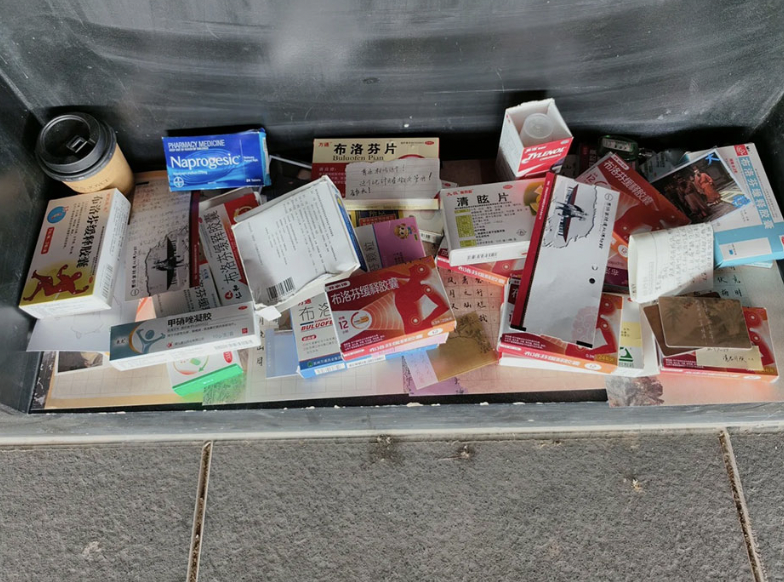During the Qingming Festival, young people in China are bringing modern offerings to their ancestors' graves, chosen based on the deceased's interests or personality. Some paper workshops are even crafting miniature phones and laptops to meet this demand.
At the tomb of Cao Cao in Henan, a figure from the Romance of the Three Kingdoms known for his headaches, visitors have left ibuprofen.
22-year-old Huang Ji, who brought four different types of medication, explained that this was in case one type wasn't effective or "the general had developed a tolerance."
 |
Painkillers left at the tomb of Cao Cao in Henan, China. Photo: Sixth Tone |
Painkillers left at the tomb of Cao Cao in Henan, China. Photo: Sixth Tone
As the number of gifts increased, museum staff placed a small shelf near the tomb to collect the medications and handwritten letters addressed to the general. A staff member stated that the offerings weren't meant to be disrespectful, but rather a way of showing reverence, even though they knew the items would be removed.
In mid-July, two tourists visiting China discovered the painkillers at Cao Cao's tomb. Their video garnered over 240,000 likes on Douyin. They later visited the tomb of Hua Tuo, the renowned physician who treated Cao Cao, and left a medical exam study guide.
Professor Wei Jian of Shandong Normal University believes this trend reflects young people's renewed interest in history. The gifts are a form of remembrance, making historical figures more relatable.
In Sichuan, history enthusiasts left high-speed train tickets at the tomb of Zhuge Liang, a famous strategist who served Liu Bei, with the idea of helping him fulfill his dream of a northern expedition against Cao Cao's descendants.
A miniature model of an aircraft carrier was placed at the tomb of Zhou Yu, a general renowned for his naval victories during the Three Kingdoms era, to symbolize the advancements in naval power since his time.
These offerings aren't limited to the Three Kingdoms period. At the resting place of Tang dynasty poet Li Bai, known for his wine-inspired verses, visitors have left alcohol from across China and abroad. Someone else left cigarettes, alcohol, and mahjong tiles for Li Qingzhao, a tribute to the Song dynasty poet's zest for life.
Ngoc Ngan (From Sixth Tone)












